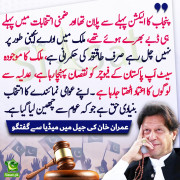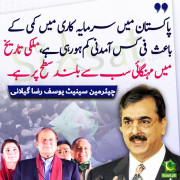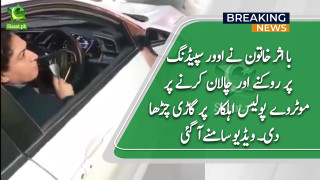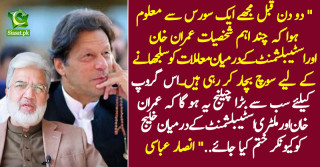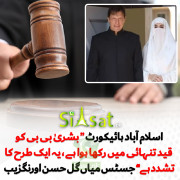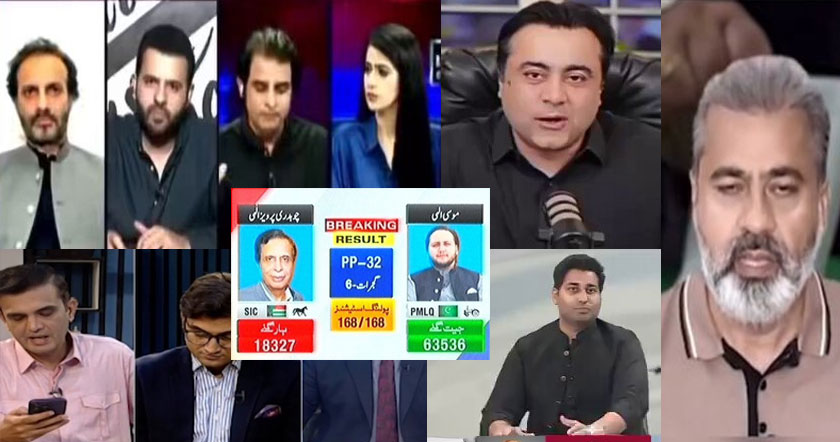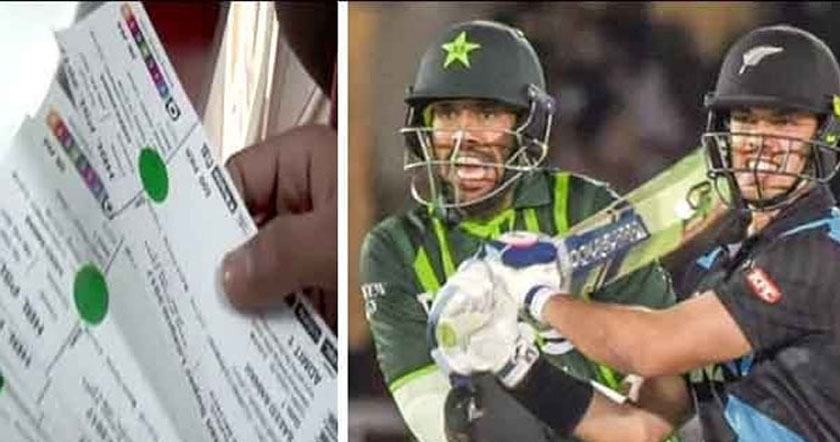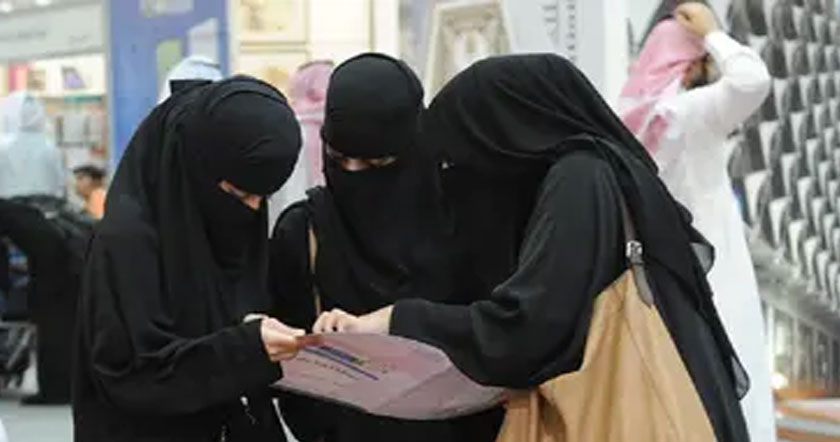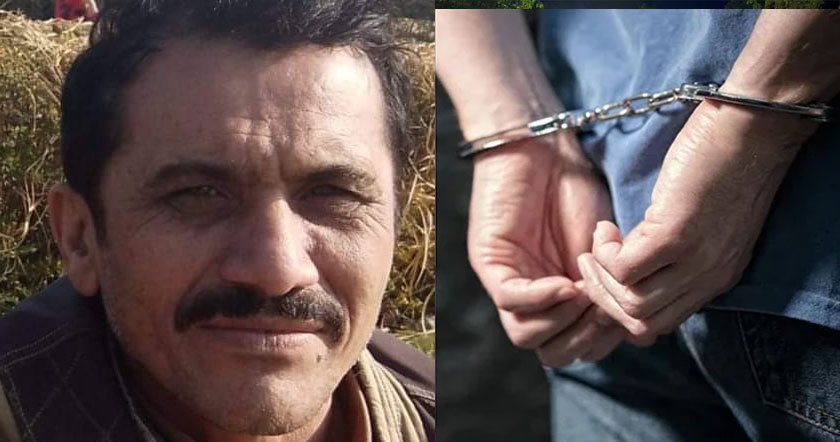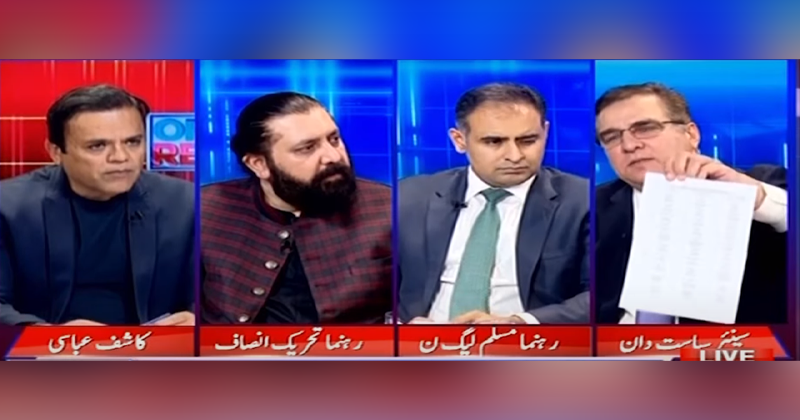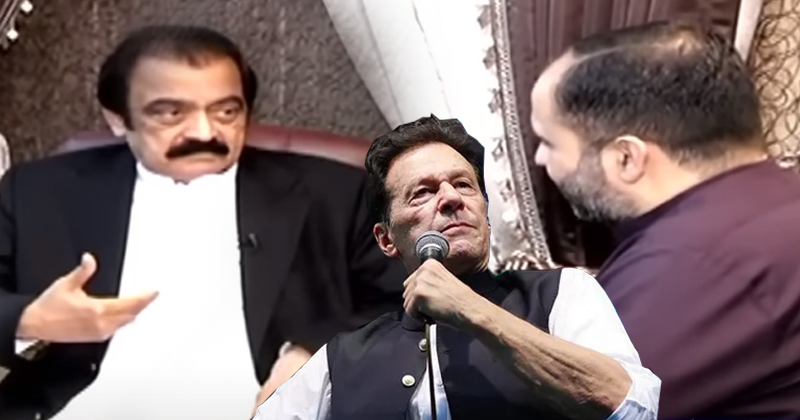An author discusses her new book about the historical narratives of the 1971 civil war that broke up East Pakistan.

Guerilla fighters of the Mukti Bahini prepare to bayonet men who collaborated with the Pakistani army during East Pakistan's fight to become the independent state of Bangladesh [GALLO/GETTY] Last month,
Al Jazeera published an article entitled Book, film greeted with fury among Bengalis. Here, Sarmila Bose, author of Dead Reckoning: Memories of the 1971 Bangladesh War, responds to the criticism levelled at her work.
In all the excitement about the "Arab spring" it is instructive to remember the 1971 war in South Asia. Then too there was a military regime in Pakistan, easily identified as the "baddies" - and a popular uprising in its rebellious Eastern province, where Bengali nationalists were reported to be peacefully seeking freedom, democracy and human rights.
When the regime used military force to crush the rebellion in East Pakistan, India intervened like a knight to the rescue, resulting in the defeat of the bad guys, victory for the good guys and the independence of Bangladesh... Or so the story went for forty years. I grew up with it in Calcutta. It was widely repeated in the international press.
Several years ago I decided to chronicle a number of incidents of the 1971 war in-depth. I observed that many Bangladeshis were aggrieved that the world seemed to have forgotten the terrible trauma of the birth of their nation. Given the scale of the suffering, that lack of memory certainly appeared to be unfair, but there did not seem to be many detailed studies of the war - without which the world could not be expected to remember, or understand, what had happened in 1971.
My aim was to record as much as possible of what seemed to be a much-commented-on but poorly documented conflict - and to humanise it, so that the war could be depicted in terms of the people who were caught up in it, and not just faceless statistics. I hoped that the detailed documentation of what happened at the human level on the ground would help to shed some light on the conflict as a whole.
The principal tool of my study was memories. I read all available memoirs and reminiscences, in both English and Bengali. But I also embarked on extensive fieldwork, finding and talking to people who were present at many particular incidents, whether as participants, victims or eye-witnesses. Crucially, I wanted to hear the stories from multiple sources, including people on different sides of the war, so as to get as balanced and well-rounded a reconstruction as possible.
As soon as I started to do systematic research on the 1971 war, I found that there was a problem with the story which I had grown up believing: from the evidence that emanated from the memories of all sides at the ground level, significant parts of the "dominant narrative" seem not to have been true. Many "facts" had been exaggerated, fabricated, distorted or concealed. Many people in responsible positions had repeated unsupported assertions without a thought; some people seemed to know that the nationalist mythologies were false and yet had done nothing to inform the public. I had thought I would be chronicling the details of the story of 1971 with which I had been brought up, but I found instead that there was a different story to be told.
Product of research
My book Dead Reckoning: Memories of the 1971 Bangladesh War, the product of several years of fieldwork based research, has just been published (Hurst and Co. and Columbia University Press). It focuses on the bitter fratricidal war within the province of East Pakistan over a period of a little more than a year, rather than the open "hot" war between India and Pakistan towards the end. It brings together, for the first time, the memories of dozens of people from each side of the conflict who were present in East Pakistan during the war. It lets the available evidence tell the stories. It has been described as a work that "will set anew the terms of debate" about this war.
Even before anyone has had the chance to read it, Dead Reckoning has been attracting comment, some of it of a nature that according to an observer would make the very reception of my book a subject of "taboo studies". "Myth-busting" works that undermine nationalist mythology, especially those that have gone unchallenged for several decades, are clearly not to be undertaken by the faint-hearted. The book has received gratifying praise from scholars and journalists who read the advance copies, but the word "courageous" cropped up with ominous frequency in many of the reviews. Some scholars praised my work in private; others told me to prepare for the flak that was bound to follow. One "myth-busting" scholar was glad my book was out at last, as I would now sweep up at the unpopularity stakes and she would get some respite after enduring several years of abuse.
Scholars and investigative journalists have an important role in "busting" politically partisan narratives. And yet, far too often we all fall for the seductive appeal of a simplistic "good versus evil" story, or fail to challenge victors' histories.
So far the story of valiant rebels fighting oppressive dictators in the so-called "Arab spring" has had one significant blemish - the vicious sexual attack and attempted murder of CBS foreign correspondent Lara Logan by dozens of men celebrating the downfall of Hosni Mubarak in Tahrir Square in Cairo. It initially vanished from the headlines and has still not led to the kind of questioning of the representation of such conflicts that it should have generated. "Tahrir Square" became shorthand for freedom and democracy-loving people rising up against oppressive dictators.
People in other countries started to say they wanted their own "Tahrir Square". Logan has given a brave and graphic account of what happened to her at the hands of those supposedly celebrating the fall of a dictator and the coming of freedom, democracy and human rights. Her life was saved by burqa-clad Egyptian women and she was rescued by soldiers. Her account endows "Tahrir Square" with an entirely different meaning.
It should caution us against assuming that all those opposing an oppressive regime are champions of non-violence, democracy or human rights. It should alert us to the complexities of political power struggles and civil war, and stop getting carried away by what we imagine is happening, or would like to happen, rather than what the evidence supports.
Such was the impact of the 1971 war on South Asians that the year has transformed into a shorthand for its particular symbolism: 1971, or ekattor, the number 71 in Bengali, has come to stand for a simple equation of a popular nationalist uprising presumed to embody liberal democratic values battling brutal repression by a military dictatorship. But was it really as simple as that? Over time, the victorious Bangladeshi nationalist side's narrative of Pakistani villainy and Bengali victimhood became entrenched through unquestioned repetition.
The losing side of Pakistani nationalists had its own myth-making, comprising vast Indian plots. Pakistan had been carved out of the British Empire in India as a homeland for South Asia's Muslims. It was a problematic idea from the start - a large proportion of Muslims chose to remain in secular and pluralistic India, for instance, and its two parts, West Pakistan and East Pakistan, were separated by a thousand miles of a hostile India. In 1971 the idea of Islam as the basis of nationhood came apart in South Asia along with the country of Pakistan, after a mere 23 years of existence. What went wrong? And what do the memories of those who were there reveal about the reality of that war?
The publication of Dead Reckoning has spoiled the day for those who had been peddling their respective nationalist mythologies undisturbed for so long. Careers have been built - in politics, media, academia and development - on a particular telling of the 1971 war. All the warring parties of 1971 remain relentlessly partisan in recounting the conflict. As the dominant narrative, which has gained currency around the world, is that of the victorious Bangladeshi nationalists and their Indian allies, they stand to lose the most in any unbiased appraisal. Unsurprisingly therefore, the protests from this section are the shrillest.
Mixed reaction
The reaction to the publication of Dead Reckoning by those who feel threatened by it has followed a predictable path. First, there has been an attempt to damn the book before it was even available. Apart from random rants on the internet - which provides opportunity for anyone to rail against anything - reports have been written by people who haven't read the book, citing other people who also haven't read the book. The reason for this may be summed up as the well-founded fear of "knowledge is power".
When people read the book they will be far better informed as to what really happened in 1971. Hence the desperate attempt by those who have been spinning their particular yarns for so long to try to smear the book before anyone gets the chance to read it. A few people also seem to be trying to laud the book before reading it, an equally meaningless exercise. These commentaries are easy to dismiss: clearly, those who haven't read the book have nothing of value to say about it.
Second, detractors of the book claim that it exonerates the military from atrocities committed in East Pakistan in 1971. In reality the book details over several chapters many cases of atrocities committed by the regime's forces, so anyone who says it excuses the military's brutalities is clearly lying. The question is - why are they lying about something that will easily be found out as soon as people start reading the book? The answer to this question is more complex than it might seem. Of course the detractors hope that by making such claims they will stop people from reading the book.
Part of the answer lies also in that the book corrects some of the absurd exaggerations about the army's actions with which Bangladeshi nationalists had happily embellished their stories of "villainous" Pakistanis for all these years. But an important reason for falsely claiming that the book exonerates the military is to distract attention from the fact that it also chronicles the brutalities by their own side, committed in the name of Bengali nationalism. The nature and scale of atrocities committed by the "nationalist" side had been edited out of the dominant narrative. Its discovery spoils the "villains versus innocents" spin of Bangladeshi nationalist mythology.
A key question about the "controversy" over Dead Reckoning is why this book is stirring such passions when other works do not. One reason for this is that there are precious few studies of the 1971 war based on dispassionate research. This is the first book-length study that reconstructs the violence of the war at the ground-level, utilising multiple memories from all sides of the conflict.
Two eminent US historians, Richard Sisson and Leo Rose, published the only research-based study of the war at the diplomatic and policy level twenty years ago. Their excellent book, War and Secession: Pakistan, India and the Creation of Bangladesh (University of California Press, 1990), challenged the dominant narrative, but their work does not seem to be known among the general public as much as within academia.
However, a crucial reason for the special impact of Dead Reckoning has to do with who the author is. I am a Bengali, from a nationalist family in India. As Indians and Bengalis our sympathies had been firmly with the liberation struggle in Bangladesh in 1971. The dominant narrative of the 1971 war is the story as told by "my side", as it were. My reporting of what I actually found through my research, rather than unquestioningly repeating the partisan narrative or continuing the conspiracy of silence over uncomfortable truths, is thus taken as a "betrayal" by those who have profited for so long from mythologising the history of 1971.
It is important to note that not all South Asians subscribe to the myth-making. One eminent Indian journalist thought that my "courage, disregard for orthodoxy and meticulous research" in writing Dead Reckoning made me "the enfant terrible of Indian historians". A senior Bangladeshi scholar has found it "fitting that someone with Sarmila's links with Bengali nationalism should demonstrate that political values cannot be furthered by distorting history."
South Asians are prone to conjuring up all manner of conspiracy theories when faced with unpleasant realities, but those looking for one for Dead Reckoning are at a loss, as the only explanation for what it contains is that it reconstructs what really happened on the basis of available evidence.
The process of dismantling entrenched nationalist mythologies can be painful for those who have much vested in them, but the passions stirred by the publication of Dead Reckoning has sparked the debate that the 1971 war badly needed - and set on the right course the discussion of this bitter and brutal fratricidal war that split the only homeland created for Muslims in the modern world.
Sarmila Bose is Senior Research Fellow in the Politics of South Asia at the University of Oxford. She was a journalist in India for many years. She earned her degrees at Bryn Mawr College (History) and Harvard University (MPA and PhD in Political Economy and Government.)
Dead Reckoning: Memories of the 1971 Bangladesh War is published by C. Hurst and Co. and Columbia University Press.
source: http://english.aljazeera.net/indepth/opinion/2011/05/20115983958114219.html

Guerilla fighters of the Mukti Bahini prepare to bayonet men who collaborated with the Pakistani army during East Pakistan's fight to become the independent state of Bangladesh [GALLO/GETTY] Last month,
Al Jazeera published an article entitled Book, film greeted with fury among Bengalis. Here, Sarmila Bose, author of Dead Reckoning: Memories of the 1971 Bangladesh War, responds to the criticism levelled at her work.
In all the excitement about the "Arab spring" it is instructive to remember the 1971 war in South Asia. Then too there was a military regime in Pakistan, easily identified as the "baddies" - and a popular uprising in its rebellious Eastern province, where Bengali nationalists were reported to be peacefully seeking freedom, democracy and human rights.
When the regime used military force to crush the rebellion in East Pakistan, India intervened like a knight to the rescue, resulting in the defeat of the bad guys, victory for the good guys and the independence of Bangladesh... Or so the story went for forty years. I grew up with it in Calcutta. It was widely repeated in the international press.
Several years ago I decided to chronicle a number of incidents of the 1971 war in-depth. I observed that many Bangladeshis were aggrieved that the world seemed to have forgotten the terrible trauma of the birth of their nation. Given the scale of the suffering, that lack of memory certainly appeared to be unfair, but there did not seem to be many detailed studies of the war - without which the world could not be expected to remember, or understand, what had happened in 1971.
My aim was to record as much as possible of what seemed to be a much-commented-on but poorly documented conflict - and to humanise it, so that the war could be depicted in terms of the people who were caught up in it, and not just faceless statistics. I hoped that the detailed documentation of what happened at the human level on the ground would help to shed some light on the conflict as a whole.
The principal tool of my study was memories. I read all available memoirs and reminiscences, in both English and Bengali. But I also embarked on extensive fieldwork, finding and talking to people who were present at many particular incidents, whether as participants, victims or eye-witnesses. Crucially, I wanted to hear the stories from multiple sources, including people on different sides of the war, so as to get as balanced and well-rounded a reconstruction as possible.
As soon as I started to do systematic research on the 1971 war, I found that there was a problem with the story which I had grown up believing: from the evidence that emanated from the memories of all sides at the ground level, significant parts of the "dominant narrative" seem not to have been true. Many "facts" had been exaggerated, fabricated, distorted or concealed. Many people in responsible positions had repeated unsupported assertions without a thought; some people seemed to know that the nationalist mythologies were false and yet had done nothing to inform the public. I had thought I would be chronicling the details of the story of 1971 with which I had been brought up, but I found instead that there was a different story to be told.
Product of research
My book Dead Reckoning: Memories of the 1971 Bangladesh War, the product of several years of fieldwork based research, has just been published (Hurst and Co. and Columbia University Press). It focuses on the bitter fratricidal war within the province of East Pakistan over a period of a little more than a year, rather than the open "hot" war between India and Pakistan towards the end. It brings together, for the first time, the memories of dozens of people from each side of the conflict who were present in East Pakistan during the war. It lets the available evidence tell the stories. It has been described as a work that "will set anew the terms of debate" about this war.
Even before anyone has had the chance to read it, Dead Reckoning has been attracting comment, some of it of a nature that according to an observer would make the very reception of my book a subject of "taboo studies". "Myth-busting" works that undermine nationalist mythology, especially those that have gone unchallenged for several decades, are clearly not to be undertaken by the faint-hearted. The book has received gratifying praise from scholars and journalists who read the advance copies, but the word "courageous" cropped up with ominous frequency in many of the reviews. Some scholars praised my work in private; others told me to prepare for the flak that was bound to follow. One "myth-busting" scholar was glad my book was out at last, as I would now sweep up at the unpopularity stakes and she would get some respite after enduring several years of abuse.
Scholars and investigative journalists have an important role in "busting" politically partisan narratives. And yet, far too often we all fall for the seductive appeal of a simplistic "good versus evil" story, or fail to challenge victors' histories.
So far the story of valiant rebels fighting oppressive dictators in the so-called "Arab spring" has had one significant blemish - the vicious sexual attack and attempted murder of CBS foreign correspondent Lara Logan by dozens of men celebrating the downfall of Hosni Mubarak in Tahrir Square in Cairo. It initially vanished from the headlines and has still not led to the kind of questioning of the representation of such conflicts that it should have generated. "Tahrir Square" became shorthand for freedom and democracy-loving people rising up against oppressive dictators.
People in other countries started to say they wanted their own "Tahrir Square". Logan has given a brave and graphic account of what happened to her at the hands of those supposedly celebrating the fall of a dictator and the coming of freedom, democracy and human rights. Her life was saved by burqa-clad Egyptian women and she was rescued by soldiers. Her account endows "Tahrir Square" with an entirely different meaning.
It should caution us against assuming that all those opposing an oppressive regime are champions of non-violence, democracy or human rights. It should alert us to the complexities of political power struggles and civil war, and stop getting carried away by what we imagine is happening, or would like to happen, rather than what the evidence supports.
Such was the impact of the 1971 war on South Asians that the year has transformed into a shorthand for its particular symbolism: 1971, or ekattor, the number 71 in Bengali, has come to stand for a simple equation of a popular nationalist uprising presumed to embody liberal democratic values battling brutal repression by a military dictatorship. But was it really as simple as that? Over time, the victorious Bangladeshi nationalist side's narrative of Pakistani villainy and Bengali victimhood became entrenched through unquestioned repetition.
The losing side of Pakistani nationalists had its own myth-making, comprising vast Indian plots. Pakistan had been carved out of the British Empire in India as a homeland for South Asia's Muslims. It was a problematic idea from the start - a large proportion of Muslims chose to remain in secular and pluralistic India, for instance, and its two parts, West Pakistan and East Pakistan, were separated by a thousand miles of a hostile India. In 1971 the idea of Islam as the basis of nationhood came apart in South Asia along with the country of Pakistan, after a mere 23 years of existence. What went wrong? And what do the memories of those who were there reveal about the reality of that war?
The publication of Dead Reckoning has spoiled the day for those who had been peddling their respective nationalist mythologies undisturbed for so long. Careers have been built - in politics, media, academia and development - on a particular telling of the 1971 war. All the warring parties of 1971 remain relentlessly partisan in recounting the conflict. As the dominant narrative, which has gained currency around the world, is that of the victorious Bangladeshi nationalists and their Indian allies, they stand to lose the most in any unbiased appraisal. Unsurprisingly therefore, the protests from this section are the shrillest.
Mixed reaction
The reaction to the publication of Dead Reckoning by those who feel threatened by it has followed a predictable path. First, there has been an attempt to damn the book before it was even available. Apart from random rants on the internet - which provides opportunity for anyone to rail against anything - reports have been written by people who haven't read the book, citing other people who also haven't read the book. The reason for this may be summed up as the well-founded fear of "knowledge is power".
When people read the book they will be far better informed as to what really happened in 1971. Hence the desperate attempt by those who have been spinning their particular yarns for so long to try to smear the book before anyone gets the chance to read it. A few people also seem to be trying to laud the book before reading it, an equally meaningless exercise. These commentaries are easy to dismiss: clearly, those who haven't read the book have nothing of value to say about it.
Second, detractors of the book claim that it exonerates the military from atrocities committed in East Pakistan in 1971. In reality the book details over several chapters many cases of atrocities committed by the regime's forces, so anyone who says it excuses the military's brutalities is clearly lying. The question is - why are they lying about something that will easily be found out as soon as people start reading the book? The answer to this question is more complex than it might seem. Of course the detractors hope that by making such claims they will stop people from reading the book.
Part of the answer lies also in that the book corrects some of the absurd exaggerations about the army's actions with which Bangladeshi nationalists had happily embellished their stories of "villainous" Pakistanis for all these years. But an important reason for falsely claiming that the book exonerates the military is to distract attention from the fact that it also chronicles the brutalities by their own side, committed in the name of Bengali nationalism. The nature and scale of atrocities committed by the "nationalist" side had been edited out of the dominant narrative. Its discovery spoils the "villains versus innocents" spin of Bangladeshi nationalist mythology.
A key question about the "controversy" over Dead Reckoning is why this book is stirring such passions when other works do not. One reason for this is that there are precious few studies of the 1971 war based on dispassionate research. This is the first book-length study that reconstructs the violence of the war at the ground-level, utilising multiple memories from all sides of the conflict.
Two eminent US historians, Richard Sisson and Leo Rose, published the only research-based study of the war at the diplomatic and policy level twenty years ago. Their excellent book, War and Secession: Pakistan, India and the Creation of Bangladesh (University of California Press, 1990), challenged the dominant narrative, but their work does not seem to be known among the general public as much as within academia.
However, a crucial reason for the special impact of Dead Reckoning has to do with who the author is. I am a Bengali, from a nationalist family in India. As Indians and Bengalis our sympathies had been firmly with the liberation struggle in Bangladesh in 1971. The dominant narrative of the 1971 war is the story as told by "my side", as it were. My reporting of what I actually found through my research, rather than unquestioningly repeating the partisan narrative or continuing the conspiracy of silence over uncomfortable truths, is thus taken as a "betrayal" by those who have profited for so long from mythologising the history of 1971.
It is important to note that not all South Asians subscribe to the myth-making. One eminent Indian journalist thought that my "courage, disregard for orthodoxy and meticulous research" in writing Dead Reckoning made me "the enfant terrible of Indian historians". A senior Bangladeshi scholar has found it "fitting that someone with Sarmila's links with Bengali nationalism should demonstrate that political values cannot be furthered by distorting history."
South Asians are prone to conjuring up all manner of conspiracy theories when faced with unpleasant realities, but those looking for one for Dead Reckoning are at a loss, as the only explanation for what it contains is that it reconstructs what really happened on the basis of available evidence.
The process of dismantling entrenched nationalist mythologies can be painful for those who have much vested in them, but the passions stirred by the publication of Dead Reckoning has sparked the debate that the 1971 war badly needed - and set on the right course the discussion of this bitter and brutal fratricidal war that split the only homeland created for Muslims in the modern world.
Sarmila Bose is Senior Research Fellow in the Politics of South Asia at the University of Oxford. She was a journalist in India for many years. She earned her degrees at Bryn Mawr College (History) and Harvard University (MPA and PhD in Political Economy and Government.)
Dead Reckoning: Memories of the 1971 Bangladesh War is published by C. Hurst and Co. and Columbia University Press.
source: http://english.aljazeera.net/indepth/opinion/2011/05/20115983958114219.html





